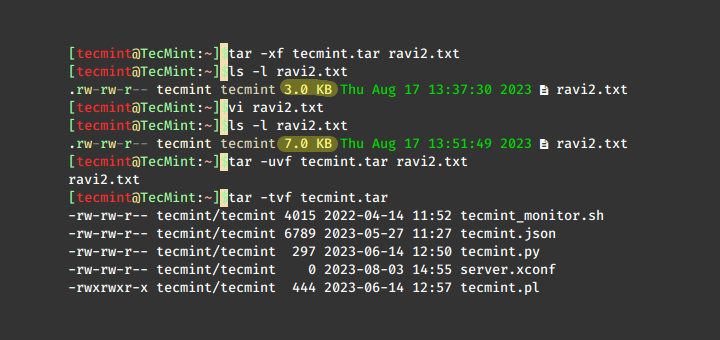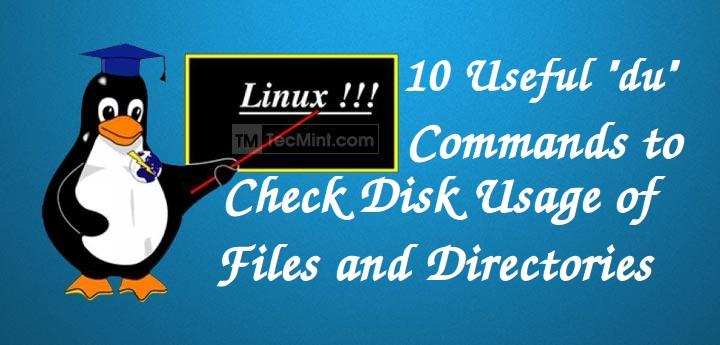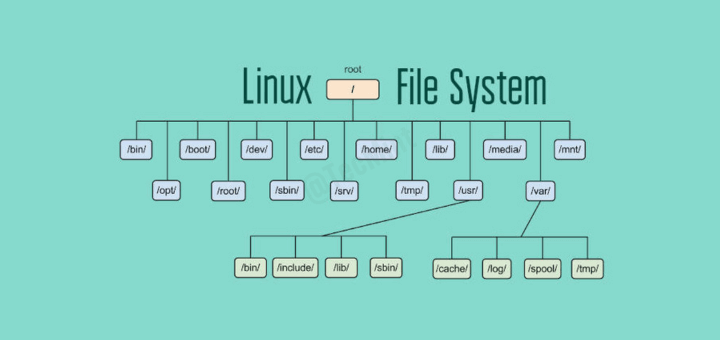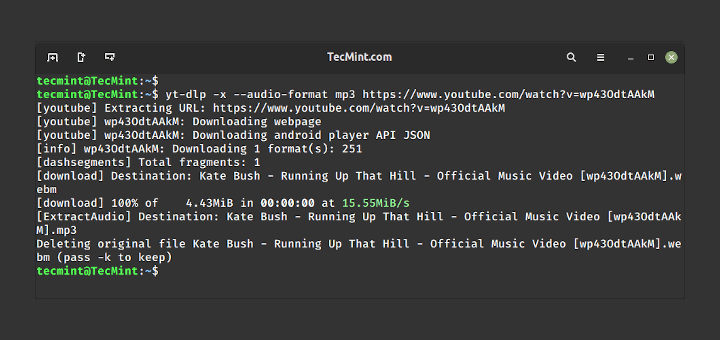We use history command frequently in our daily routine jobs to check history of command or to get info about command executed by user. In this post, we will see how we can use history command effectively to extract the command which was executed by users in Bash shell. This may be useful for audit purpose or to find out what command is executed at what date and time.
By default date and timestamp won’t be seen while executing history command. However, bash shell provides CLI tools for editing user’s command history. Let’s see some handy tips and tricks and power of history command.

1. List Last/All Executed Commands in Linux
Executing simple history command from terminal will show you a complete list of last executed commands with line numbers.
[narad@tecmint ~]$ history
1 PS1='\e[1;35m[\u@\h \w]$ \e[m '
2 PS1="\e[0;32m[\u@\h \W]$ \e[m "
3 PS1="\u@\h:\w [\j]$ "
4 ping google.com
5 echo $PS1
6 tail -f /var/log/messages
7 tail -f /var/log/messages
8 exit
9 clear
10 history
11 clear
12 history
2. List All Commands with Date and Timestamp
How to find date and timestamp against command? With ‘export’ command with variable will display history command with corresponding timestamp when the command was executed.
[narad@tecmint ~]$ export HISTTIMEFORMAT='%F %T '
1 2013-06-09 10:40:12 cat /etc/issue
2 2013-06-09 10:40:12 clear
3 2013-06-09 10:40:12 find /etc -name *.conf
4 2013-06-09 10:40:12 clear
5 2013-06-09 10:40:12 history
6 2013-06-09 10:40:12 PS1='\e[1;35m[\u@\h \w]$ \e[m '
7 2013-06-09 10:40:12 PS1="\e[0;32m[\u@\h \W]$ \e[m "
8 2013-06-09 10:40:12 PS1="\u@\h:\w [\j]$ "
9 2013-06-09 10:40:12 ping google.com
10 2013-06-09 10:40:12 echo $PS1
Meaning of HISTTIMEFORMAT variables
%F Equivalent to %Y - %m - %d %T Replaced by the time ( %H : %M : %S )
3. Filter Commands in History
As we can see same command is being repeated number of times in above output. How to filter simple or non destructive commands in history?. Use the following ‘export‘ command by specifying command in HISTIGNORE=’ls -l:pwd:date:’ will not saved by system and not be shown in history command.
[narad@tecmint ~]$ export HISTIGNORE='ls -l:pwd:date:'
4. Ignore Duplicate Commands in History
With the below command will help us to ignore duplicate commands entry made by user. Only single entry will be shown in history, if a user execute a same command multiple times in a Bash Prompt.
[narad@tecmint ~]$ export HISTCONTROL=ignoredups
5. Unset export Command
Unset export command on the fly. Execute unset export command with variable one by one whatever commands have been exported by export command.
[narad@tecmint ~]$ unset export HISTCONTROL
6. Save export Command Permanently
Make an entry as follows in .bash_profile to save export command permanently.
[narad@tecmint ~]$ vi .bash_profile
# .bash_profile
# Get the aliases and functions
if [ -f ~/.bashrc ]; then
. ~/.bashrc
fi
# User specific environment and startup programs
export HISTCONTROL=ignoredups
PATH=$PATH:$HOME/bin
export PATH
7. List Specific User’s Executed Commands
How to see command history executed by a specific user. Bash keeps records of history in a ‘~/.bash_history’ file. We can view or open file to see the command history.
[narad@tecmint ~]$ vi .bash_history cd /tmp/ cd logstalgia-1.0.3/ ./configure sudo passwd root apt-get install libsdl1.2-dev libsdl-image1.2-dev libpcre3-dev libftgl-dev libpng12-dev libjpeg62-dev make gcc ./configure make apt-get install libsdl1.2-dev libsdl-image1.2-dev libpcre3-dev libftgl-dev libpng12-dev libjpeg62-dev make gcc++ apt-get install libsdl1.2-dev libsdl-image1.2-dev libpcre3-dev libftgl-dev libpng12-dev libjpeg62-dev make gcc apt-get install make mysql -u root -p apt-get install grsync apt-get install unison unison
8. Disable Storing History of Commands
Some organization do not keep history of commands because of security policy of the organization. In this case, we can edit .bash_profile file (It’s hidden file) of user’s and make an entry as below.
[narad@tecmint ~]$ vi .bash_profile
# .bash_profile
# Get the aliases and functions
if [ -f ~/.bashrc ]; then
. ~/.bashrc
fi
# User specific environment and startup programs
PATH=$PATH:$HOME/bin
HISTSIZE=0
export PATH
.bash_profile (END)
Save file and load changes with below command.
[narad@tecmint ~]$ source .bash_profile
Note: If you don’t want system to remember the commands that you have typed, simply execute below command which will disable or stop recording history on the fly.
[narad@tecmint ~]$ export HISTSIZE=0
Tips: Search ‘HISTSIZE‘ and edit in ‘/etc/profile’ file with superuser. The change in file will effect globally.
9. Delete or Clear History of Commands
With up and down arrow, we can see previously used command which may be helpful or may irate you. Deleting or clearing all the entries from bash history list with ‘-c‘ options.
[narad@tecmint ~]$ history -c
10. Search Commands in History Using Grep Command
Search command through ‘.bash_history‘ by piping your history file into ‘grep‘ as below. For example, the below command will search and find ‘pwd‘ command from the history list.
[narad@tecmint ~]$ history | grep pwd 113 2013-06-09 10:40:12 pwd 141 2013-06-09 10:40:12 pwd 198 2013-06-09 15:46:23 history | grep pwd 202 2013-06-09 15:47:39 history | grep pwd
11. Search Lastly Executed Command
Search previously executed command with ‘Ctrl+r’ command. Once you’ve found the command you’re looking for, press ‘Enter‘ to execute the same else press ‘esc‘ to cancel it.
(reverse-i-search)`source ': source .bash_profile
12. Recall Last Executed Command
Recall a previously used specific command. Combination of Bang and 8 (!8) command will recall number 8 command which you have executed.
[narad@tecmint ~]$ !8
13. Recall Lastly Executed Specific Command
Recall previously used command (netstat -np | grep 22) with ‘!‘ and followed by some letters of that particular command.
[narad@tecmint ~]$ !net netstat -np | grep 22 (No info could be read for "-p": geteuid()=501 but you should be root.) tcp 0 68 192.168.50.2:22 192.168.50.1:1857 ESTABLISHED - tcp 0 0 192.168.50.2:22 192.168.50.1:2516 ESTABLISHED - unix 2 [ ] DGRAM 12284 - @/org/freedesktop/hal/udev_event unix 3 [ ] STREAM CONNECTED 14522 - unix 2 [ ] DGRAM 13622 - unix 3 [ ] STREAM CONNECTED 12250 - @/var/run/hald/dbus-ujAjOMNa0g unix 3 [ ] STREAM CONNECTED 12249 - unix 3 [ ] STREAM CONNECTED 12228 - /var/run/dbus/system_bus_socket unix 3 [ ] STREAM CONNECTED 12227 -
We have tried to highlight power of history command. However, this is not end of it. Please share your experience of history command with us through our comment box below.







How I can delete history between two-time stamps.
https://askubuntu.com/questions/708906/how-to-remove-command-line-history-from-a-specific-time-period
Then again, the *only* reason to delete history between two points is to hide nefarious, embarrassing, or even illegal, activity on someone’s machine. :P
The only reason to delete history is to hide something you are doing.